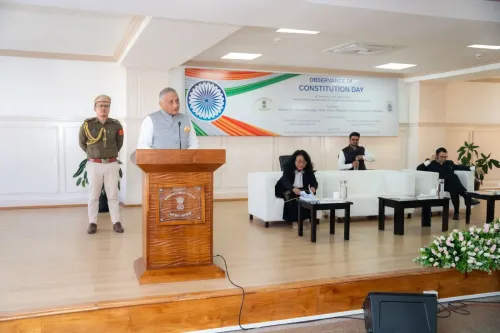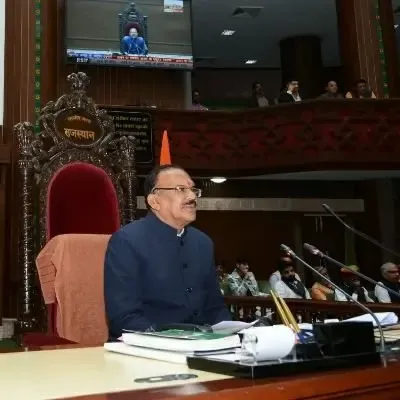Is TN Ready to Launch Its Online Property Registration System?

Synopsis
Key Takeaways
- Tamil Nadu is launching an online property registration system.
- The system aims to reduce congestion in sub-registrar offices.
- Initially optional, it may become mandatory in the future.
- Aadhaar-based authentication will be integrated.
- The initiative aims to enhance efficiency and curb corruption.
Chennai, Aug 18 (NationPress) The process of property registration in Tamil Nadu is set to undergo a significant transformation, as the state government is gearing up to unveil an online system that enables buyers and developers to complete first-sale registrations without needing to visit sub-registrar offices (SROs).
Initially, this new feature will be optional but is anticipated to become mandatory over time.
Officials indicate that this initiative aims to alleviate congestion in SROs, many of which function from limited office spaces with inadequate parking.
Every year, approximately 36 lakh documents are registered in the state, which includes around 5.5 lakh Memoranda of Deposit of Title Deed (MOD) and 3.5 lakh receipt deeds.
On average, 26,000 apartments are registered each month, with Chennai representing the most significant portion. Tamil Nadu currently has 582 SROs.
Two years prior, a presenceless registration system was initiated for MODs, receipt deeds, and residential lease deeds (up to five years), although it was optional. As of now, only about 30,000 MODs and receipt deeds are processed through the online platform.
Under the new model, after sellers and developers upload their applications online, the corresponding SRO will review, verify, and approve the documents.
To facilitate this, the registration department will supply specialized software to prominent developers and builder associations. “We aim to launch the facility by the end of this year. It will enhance efficiency, minimize delays, and curb corruption, although it won't be mandatory right away,” stated a senior official from the registration department.
He further mentioned that Aadhaar-based authentication, including fingerprint and iris verification, will be incorporated. Developers will need to acquire biometric and iris scanners to utilize the system.
Officials have already researched comparable systems in Madhya Pradesh and other states.
Conversations have also been initiated with banks to consider making MODs and receipt deeds mandatorily presenceless in the future.
Despite its potential for convenience, this initiative has raised concerns regarding security and fraud mitigation.
Experts and industry stakeholders assert that while digitalization will streamline the registration process, the success of this system will hinge on the government’s ability to implement robust checks and balances to ensure secure property transactions and maintain public trust.









